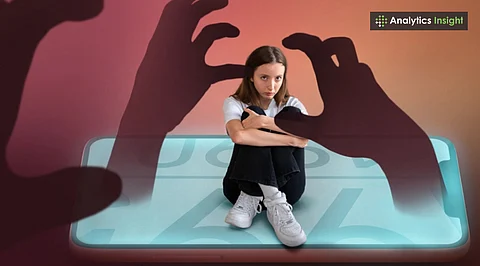

A new trend is influencing teenage relationships, and it doesn’t involve friends from school or social media followers. Instead, it’s about AI friendship. Many teens across the US are now building emotional connections with AI tools like ChatGPT, Replika, and Character.AI. These platforms, originally designed to answer questions or act as digital assistants, have evolved into something more personal and intimate.
For some teenagers, these machines have quietly stepped into the space once reserved for close friends. Their conversations range from daily dilemmas to emotional struggles, and the AI listens without judging, offering support at any hour. In many cases, teens even say it feels safer and easier than opening up to people.
AI companions are filling a new role in teenage lives! According to a new study by Common Sense Media, 72% of US teens aged between 13 and 17 have interacted with AI companions. About one-third say these chats feel just as satisfying or even more so than real conversations. For many, AI companionship feels like a safe space free from rejection or pressure.
However, this shift raises alarming concerns. Experts note that while AI companions may alleviate loneliness, they cannot replace the social development skills derived from human connection. AI lacks the unpredictability and emotional depth inherent in genuine relationships. Overuse can lead to emotional dependence, impair critical thinking, and hinder growth in real-world communication.
Teens are no longer using AI solely for entertainment or homework assistance. Instead, they lean on it during their weak moments or when making major life decisions. AI is steadily shaping how teens process their emotions and determine their self-worth.
Several recent cases have raised major concerns about the use of AI companions. For instance, an adolescent reportedly used an AI chatbot to break up with someone. In another, a minor developed an unhealthy attachment to a chatbot, with tragic consequences. These incidents only hint at the dangers this technology can bring if left unchecked.
Despite the risks, teens continue to be drawn to the comfort of AI. It's always present and doesn't misread tone or emotions. AI companions reflect validation in ways that real people sometimes don’t. For many young minds still developing, this kind of emotional loop can be powerful.
Psychologists urge balance. While AI tools might have an adjunct function to real interaction, they can never serve as the mainstay of teenage emotional life. To mold their personalities, teenagers are required to cultivate human empathy, learn how to handle awkward situations, and grow from real conversations.
With technology on a steep rise, the dividing line between tools for support and those serving as emotional partners is blurring. Though AI companions are there to soothe, what teenagers really need are real friendships that foster their growth amidst a world that still relies on human connections.
Also Read – Can AI Understand Human Emotions Better Than We Do?
